The purpose of jQuery is Write Less, Do More. It's not as intrusive a JavaScript development style as YUI, and certainly not as massive as Dojo and YUI. It greatly simplifies the daily development work of JavaScript, mainly the operation of DOM elements (as can be seen from the name Query). Another major task that every front-end developer needs to face is browser compatibility. jQuery is compatible with most versions of all major browsers, starting from the evil IE6 to modern browsers such as Firefox and Chrome. Except for a small part of the core code, the rest of jQuery are loose functions and are highly extensible. There are thousands of jQuery plug-ins on http://plugins.jquery.com. Almost all the functions you need have corresponding jQuery plug-ins, and there is more than one.
The head of the jQuery code is the License statement. It adopts GPLv2 and MIT dual agreements. And under the jQuery declaration is the declaration of another project: Sizzle. This is another open source project from the author of jQuery, released under MIT, BSD and GPL. It is an independent selector implementation (pure-JavaScript CSS selector engine) and can be used independently. Its compressed version is only a little over 3KB and is known as the most efficient selector implementation. jQuery uses Sizzle instead of the original selector implementation starting from 1.3.
There are a lot of () and {} in the JS code. Vim is used to read it here, because the % command can quickly find matching brackets.
The overall code structure and variables
The jQuery code as a whole is an anonymous function call:
(function (window, undefined) {
// ...
})(window);
This is to avoid polluting the global object and is also convenient The management execution context. This technique is often seen in JS code and is also common in jQuery code. For example, when jQuery is used with other JS libraries, the $ symbol may have been used. To still use the $ sign:
(function ($) {
// $ ("...")... As usual use $
})(jQuery);
Pass in the real jQuery object here.
Let’s enter the real implementation part. The first is $, which is the declaration of the jQuery object. The two most basic members are also listed:
var jQuery = (function() {
var jQuery = function(selector, context) {
// The real initialization function
return new jQuery.fn.init(selector, context, rootjQuery);
},
// A lot of variable declarations
// fn is the main function implementation point and the starting point of the jQuery plug-in. JS prototype
jQuery.fn = jQuery.prototype = {
};
// A function used to extend an object, which can dynamically add members to the object. In the future, extend will be used to add members to jQuery. Function completed.
jQuery.extend = jQuery.fn.extend = function() {
};
// ...
return jQuery;
})();
The jQuery object is the core object. All $(...) obtains are jQuery objects. Except for a small number of Utility functions directly implemented under jQuery, most functions are added using the extend method. into the jQuery object.
 jquery实现多少秒后隐藏图片Apr 20, 2022 pm 05:33 PM
jquery实现多少秒后隐藏图片Apr 20, 2022 pm 05:33 PM实现方法:1、用“$("img").delay(毫秒数).fadeOut()”语句,delay()设置延迟秒数;2、用“setTimeout(function(){ $("img").hide(); },毫秒值);”语句,通过定时器来延迟。
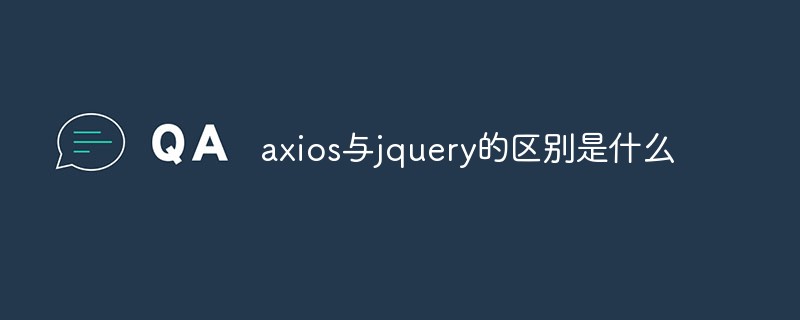 axios与jquery的区别是什么Apr 20, 2022 pm 06:18 PM
axios与jquery的区别是什么Apr 20, 2022 pm 06:18 PM区别:1、axios是一个异步请求框架,用于封装底层的XMLHttpRequest,而jquery是一个JavaScript库,只是顺便封装了dom操作;2、axios是基于承诺对象的,可以用承诺对象中的方法,而jquery不基于承诺对象。
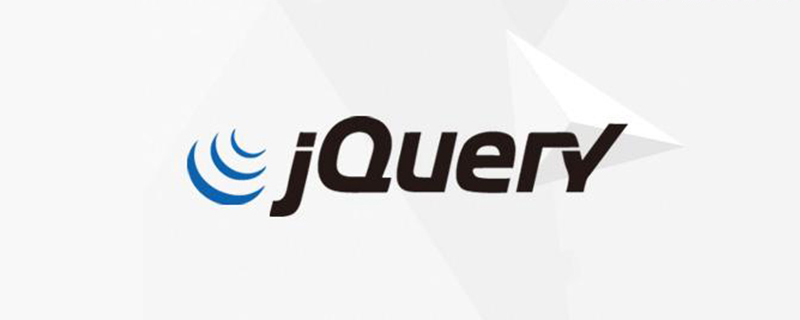 jquery怎么修改min-height样式Apr 20, 2022 pm 12:19 PM
jquery怎么修改min-height样式Apr 20, 2022 pm 12:19 PM修改方法:1、用css()设置新样式,语法“$(元素).css("min-height","新值")”;2、用attr(),通过设置style属性来添加新样式,语法“$(元素).attr("style","min-height:新值")”。
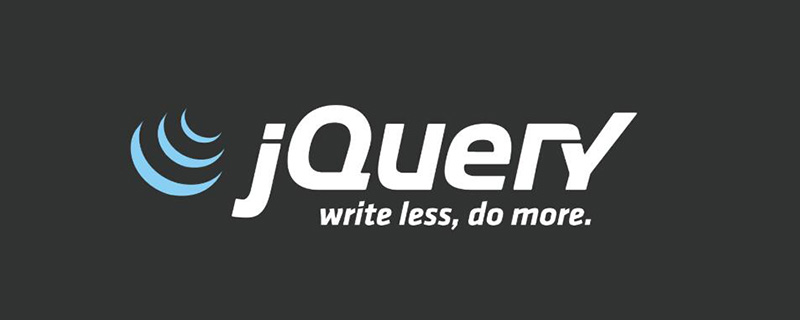 jquery怎么在body中增加元素Apr 22, 2022 am 11:13 AM
jquery怎么在body中增加元素Apr 22, 2022 am 11:13 AM增加元素的方法:1、用append(),语法“$("body").append(新元素)”,可向body内部的末尾处增加元素;2、用prepend(),语法“$("body").prepend(新元素)”,可向body内部的开始处增加元素。
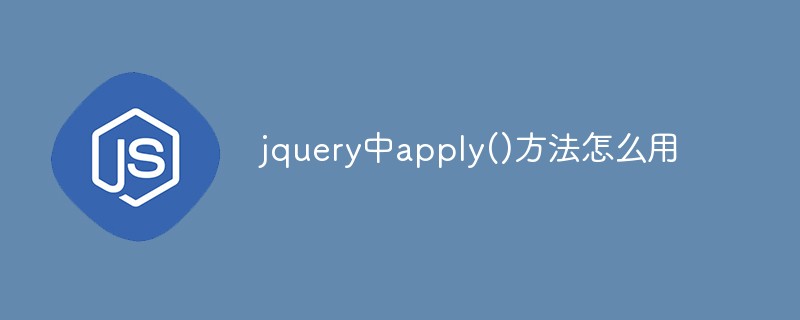 jquery中apply()方法怎么用Apr 24, 2022 pm 05:35 PM
jquery中apply()方法怎么用Apr 24, 2022 pm 05:35 PM在jquery中,apply()方法用于改变this指向,使用另一个对象替换当前对象,是应用某一对象的一个方法,语法为“apply(thisobj,[argarray])”;参数argarray表示的是以数组的形式进行传递。
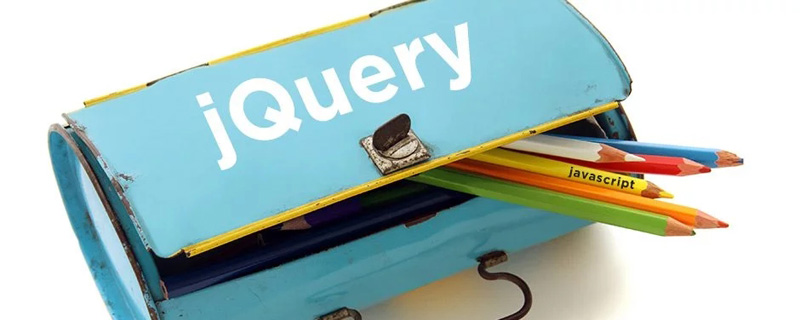 jquery怎么删除div内所有子元素Apr 21, 2022 pm 07:08 PM
jquery怎么删除div内所有子元素Apr 21, 2022 pm 07:08 PM删除方法:1、用empty(),语法“$("div").empty();”,可删除所有子节点和内容;2、用children()和remove(),语法“$("div").children().remove();”,只删除子元素,不删除内容。
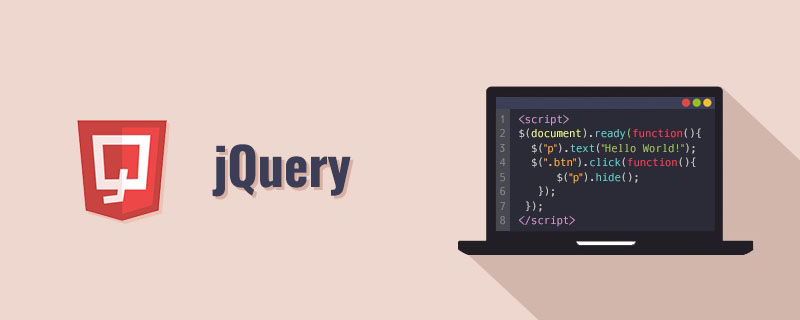 jquery怎么去掉只读属性Apr 20, 2022 pm 07:55 PM
jquery怎么去掉只读属性Apr 20, 2022 pm 07:55 PM去掉方法:1、用“$(selector).removeAttr("readonly")”语句删除readonly属性;2、用“$(selector).attr("readonly",false)”将readonly属性的值设置为false。
 jquery on()有几个参数Apr 21, 2022 am 11:29 AM
jquery on()有几个参数Apr 21, 2022 am 11:29 AMon()方法有4个参数:1、第一个参数不可省略,规定要从被选元素添加的一个或多个事件或命名空间;2、第二个参数可省略,规定元素的事件处理程序;3、第三个参数可省略,规定传递到函数的额外数据;4、第四个参数可省略,规定当事件发生时运行的函数。


Hot AI Tools

Undresser.AI Undress
AI-powered app for creating realistic nude photos

AI Clothes Remover
Online AI tool for removing clothes from photos.

Undress AI Tool
Undress images for free

Clothoff.io
AI clothes remover

AI Hentai Generator
Generate AI Hentai for free.

Hot Article

Hot Tools

EditPlus Chinese cracked version
Small size, syntax highlighting, does not support code prompt function

Safe Exam Browser
Safe Exam Browser is a secure browser environment for taking online exams securely. This software turns any computer into a secure workstation. It controls access to any utility and prevents students from using unauthorized resources.

Dreamweaver CS6
Visual web development tools

SublimeText3 Linux new version
SublimeText3 Linux latest version

mPDF
mPDF is a PHP library that can generate PDF files from UTF-8 encoded HTML. The original author, Ian Back, wrote mPDF to output PDF files "on the fly" from his website and handle different languages. It is slower than original scripts like HTML2FPDF and produces larger files when using Unicode fonts, but supports CSS styles etc. and has a lot of enhancements. Supports almost all languages, including RTL (Arabic and Hebrew) and CJK (Chinese, Japanese and Korean). Supports nested block-level elements (such as P, DIV),






